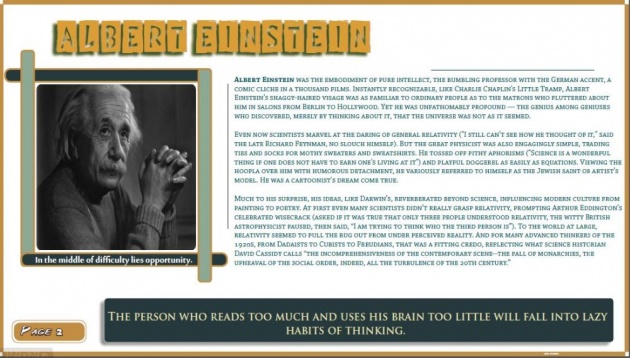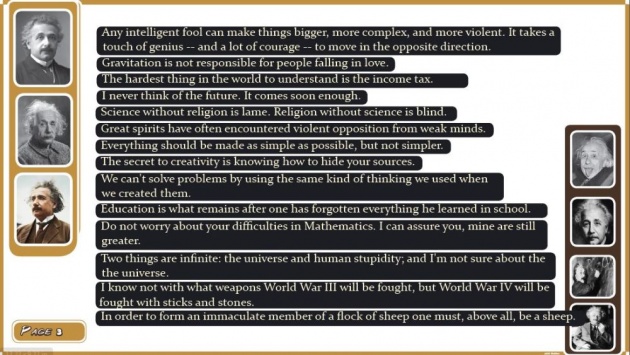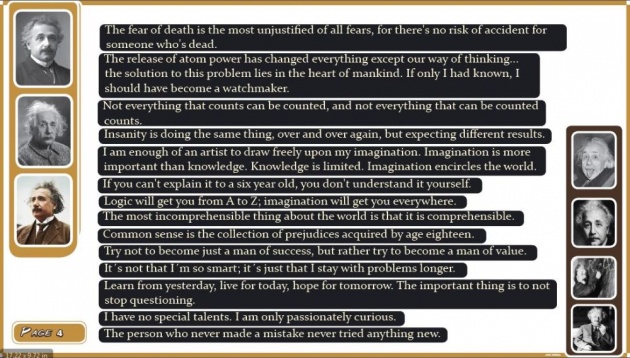Albert Einstein was the embodiment of pure intellect, the bumbling professor with the German accent, a
comic cliche in a thousand films. Instantly recognizable, like Charlie Chaplin's Little Tramp, Albert
Einstein's shaggy-haired visage was as familiar to ordinary people as to the matrons who fluttered about
him in salons from Berlin to Hollywood. Yet he was unfathomably profound — the genius among geniuses
who discovered, merely by thinking about it, that the universe was not as it seemed.
Even now scientists marvel at the daring of general relativity ("I still can't see how he thought of it," said
the late Richard Feynman, no slouch himself). But the great physicist was also engagingly simple, trading
ties and socks for mothy sweaters and sweatshirts. He tossed off pithy aphorisms ("Science is a wonderful
thing if one does not have to earn one's living at it") and playful doggerel as easily as equations. Viewing the
hoopla over him with humorous detachment, he variously referred to himself as the Jewish saint or artist's
model. He was a cartoonist's dream come true.
Much to his surprise, his ideas, like Darwin’s, reverberated beyond science, influencing modern culture from
painting to poetry. At first even many scientists didn’t really grasp relativity, prompting Arthur Eddington’s
celebrated wisecrack (asked if it was true that only three people understood relativity, the witty British
astrophysicist paused, then said, “I am trying to think who the third person is”). To the world at large,
relativity seemed to pull the rug out from under perceived reality. And for many advanced thinkers of the
1920s, from Dadaists to Cubists to Freudians, that was a fitting credo, reflecting what science historian
David Cassidy calls “the incomprehensiveness of the contemporary scene--the fall of monarchies, the
upheaval of the social order, indeed, all the turbulence of the 20th century.”




Albert Einstein
Posted on at



